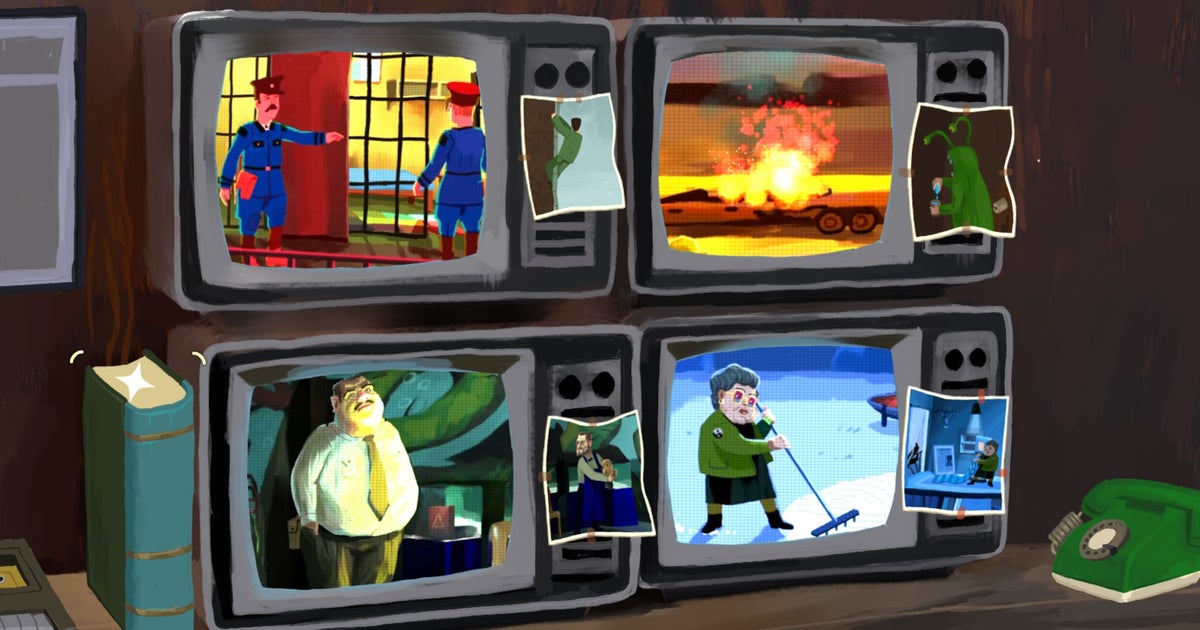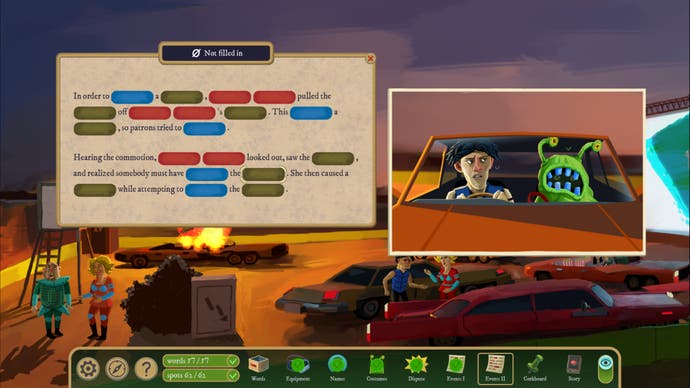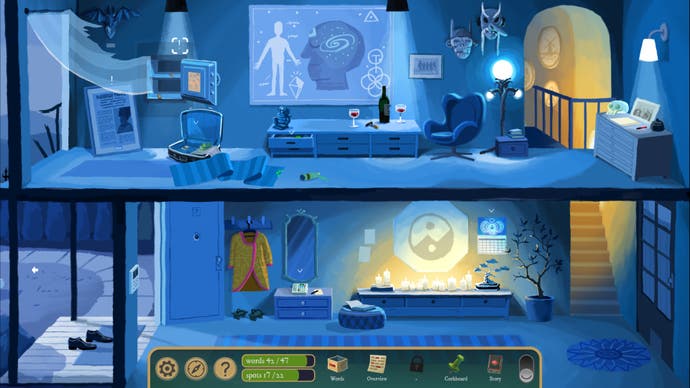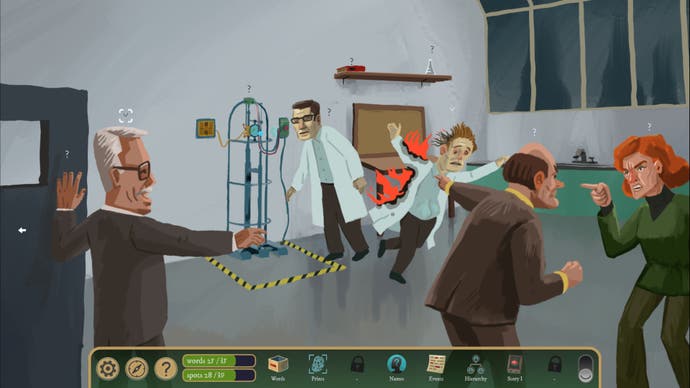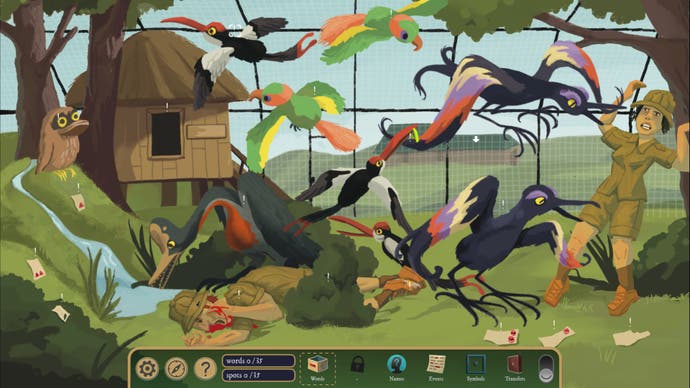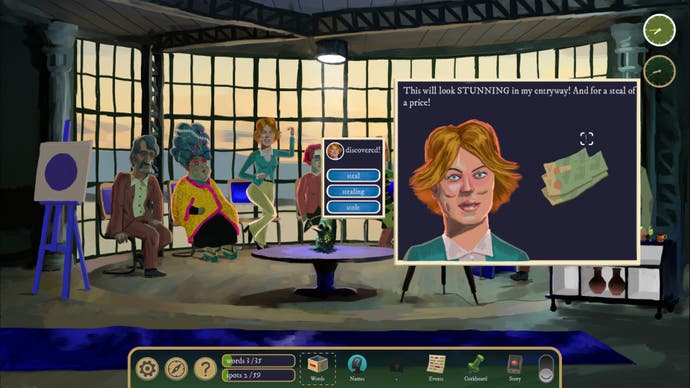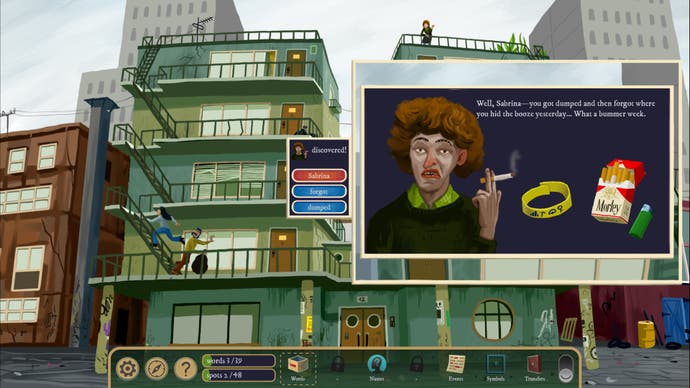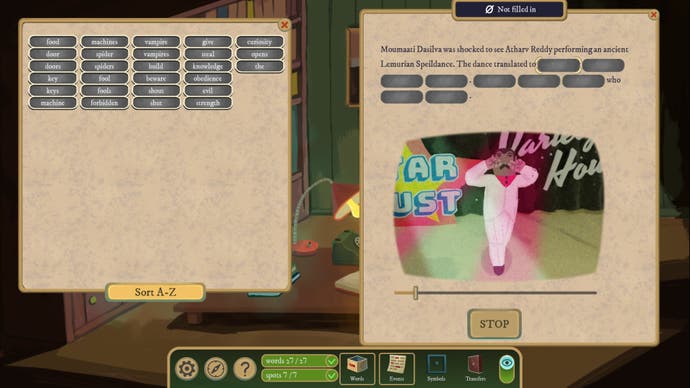
What a year, huh? 2024 has been brutal for video games, a medium which has taken a bludgeoning from seemingly all angles. It’s been one of the quietest years for triple-A games in recent memory and the toughest for studios of just about all sizes too.
But through all that there have been – as there always has been and probably always will be – a surging, irrepressible wave of brilliant, inventive, utterly joyeous video games. This has been a year of survival, but also a year of total, out-of-nowhere hits. New, weird, unsuspected gems bursting onto the scene to fill the void left by the blockbusters, which seem set to almost unanimously duke it out for your attention in 2025 instead.
Well done on making it through this year. Thank you, as always, for reading. And please enjoy this list of wonderful games – the reason we’re all here in the first place. Here are the 50 best games of 2024, ranked.
50. The Plucky Squire
Platforms: PC, PS5, Xbox Series X/S, Switch
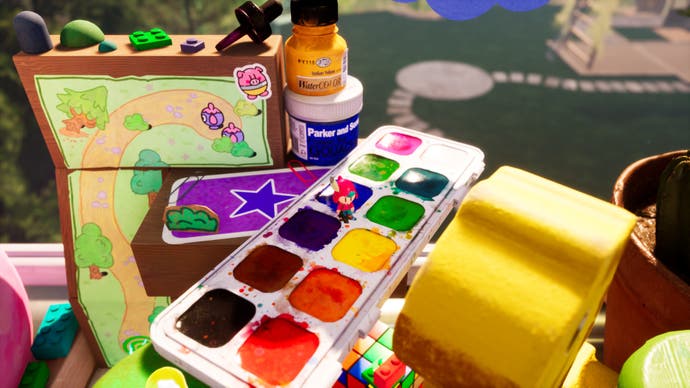
At the centre of The Plucky Squire is an idea so brilliant it’s still stunning no one has done it before. The ability for a picture book character to become sentient and jump out (and back into) the book’s pages to impact its story is an idea I can’t believe isn’t already a Pixar movie. In a video game, even after two dozen times, the concept never quite gets old. It’s a superlative idea, and The Plucky Squire oozes charm as your little hero attempts to save the day by exploring back and forth through his picture book’s chapters, and then in the bedroom of the book’s young reader. The game isn’t perfect – at launch its verbose writing risked alienating a similarly young audience, while some of its repeated, handhold-y puzzles should probably have been abridged. Now, a recent update has attempted to smooth over some of that – and the brilliance of that initial key concept remains.
Read more in our The Plucky Squire review
49. Like A Dragon: Infinite Wealth
Platforms: PC, PS4, PS5, Xbox One, Xbox Series X/S
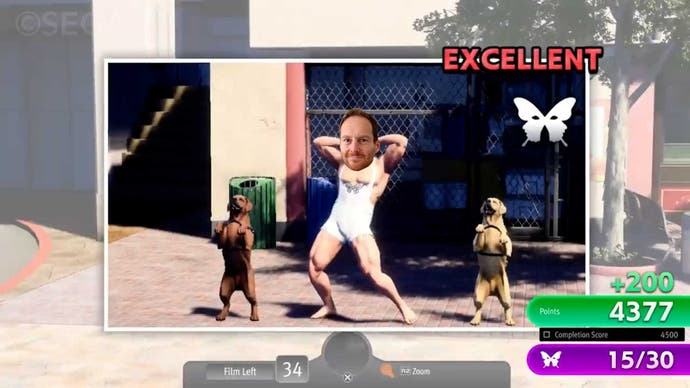
“Hope you guys know how to fish,” says Infinite Wealth’s lead character Ichiban Kasuga moments before a giant shark beaches itself on the boat you’re traveling on. A turn-based battle against this beast follows, the ridiculousness of the situation barely registering as you attempt to beat up a monster even the great Jason Statham would be wary of. This is Like A Dragon: Infinite Wealth, though. It’s a game full of moments like this, the kind of which you’d usually never expect but kind of do here. As with other games in the series, you can try to explain to someone why they should play it, but it’s not until they actually do that the penny drops. There are no other games like this, and they must be treasured. – Tom Orry
Read more in our Like A Dragon: Infinite Wealth review
48. 1000x Resist
Platforms: PC
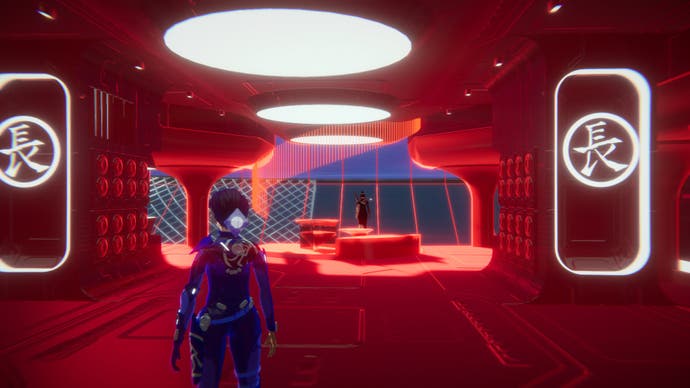
The pandemic. Cloning. Gene editing. Hong Kong’s Umbrella Revolution. The apocalypse. 1000xResist embraces all of these subjects during the course of this intimate 3D visual novel, shining a bright and unflinching light on what kind of society might emerge from this petri dish of disasters. The result is one of spiralling complexity, a slow burning tale of faith, lies and conspiracy that suddenly roars to life as it hits the halfway mark, catapulting the world of heroine Watcher, her clone-like sisters and their All Mother goddess originator into violent disarray. Memories become vital battlegrounds to discern and excavate the truth behind Watcher’s heritage, and as the whys and hows of this strange, enigmatic world begin to take shape through these fickle and dreamlike flashbacks, we get to see the big ugly mess of best intentions gone awry sitting at the heart of it. 1000xResist offers no easy answers to any of its big thematic debates, but that’s precisely why this raw and deeply personal journey is so memorable and important. – Katharine Castle
Read more in our 1000x Resist review
47. Grunn
Platforms: PC
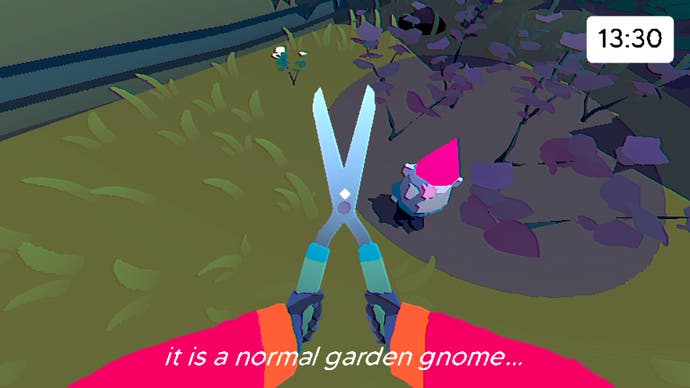
Self-described ‘totally normal gardening game’ Grunn is anything but normal, and developer Sokpop Collective delight in wrong-footing you at almost every turn in this secretly low-key horror game. Your task seems simple enough – as you arrive at the gates of an overgrown country house on a bright Saturday morning, you’ve got until Monday to get the place spick and span before the owners come home. The gardening itself is pleasingly tactile, and the shoomp shoomp of the grass and hedge shears and the combative swipes of your trowel all feel great under the thumbs. But you’ll soon realise there’s something much darker and weirder going on beneath the surface of Grunn, and that these strange forces are actively out to get you. Through a smattering of enigmatic polaroids, Grunn gradually emerges as a horror-infused adventure game, tasking players with matching disparate items to the right puzzle scenarios to help peel back its layers and get to the heart of this deliciously unnerving experience. You won’t be able to do everything on a single playthrough, but each run arms you with more knowledge and shortcuts to unravel its tantalising mystery. It’s wonderfully creepy, and a real grower. – Katharine Castle
Read more in our Grunn Wishlisted feature
46. Call of Duty: Black Ops 6
Platforms: PC, PS4, PS5, Xbox One, Xbox Series X/S
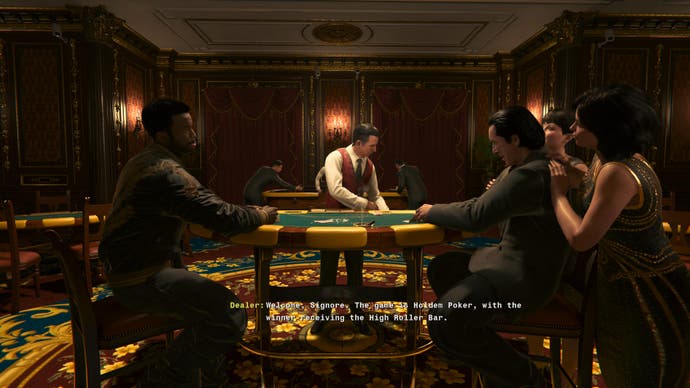
I won’t lie, I enjoyed the Black Ops 6 campaign a lot more than plenty of games above it in this list. I’m not sure if that’s going to get me banished from the EG Slack or something, but I need to speak my truth. I don’t care one bit for the various multiplayer modes CoD offered this year, partly because they didn’t grab me but mostly because I simply don’t have time to sink into an online multiplayer shooter. Still, BLOPS 6 has the best campaign in a Call of Duty since 2016’s Infinite Warfare. There, I’ve said it. It’s a banger. I think that’s plenty of info to judge me with, but just know I’m right about this and if you disagree you are wrong. Here’s to terrible campaigns for the next eight years! – Tom Orry
Read more in our Call of Duty: Black Ops 6 review
45. Llamasoft: The Jeff Minter Story
Platforms: PC, PS4, PS5, Xbox One, Xbox Series X/S, Switch

These Digital Eclipse collections are hard to sum up, but here’s the rough gist of it. Imagine a luxurious special edition DVD box set of several classic films, put together with a bit of curation, and introduced with context and explanation and nice bonus features. A collection and a story all at once. The latest, from the people behind the excellent Making of Karateka, focuses on the legendary Jeff Minter, king of psychedelic arcade wonder games. This focuses on all of his earlier stuff, but don’t let that put you off. Many of these older, lesser known games still feel frighteningly new, even as you warp back to the mid 80s. Preservation with love. This is video game heritage. – Chris Tapsell
Read more in our Llamasoft: The Jeff Minter Story review
44. Sorry We’re Closed
Platforms: PC
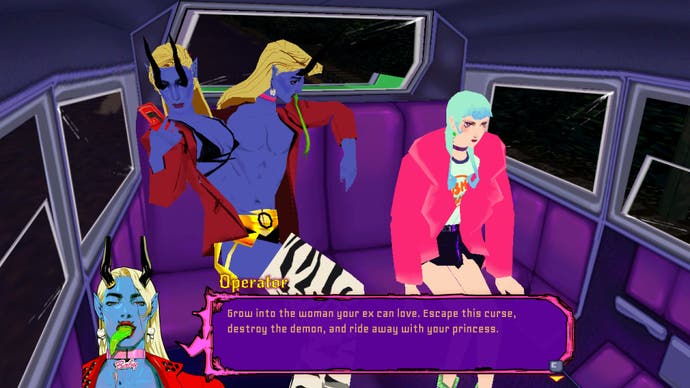
A demonic love story told through the lens of survival horror, Sorry We’re Closed is one of many excellent PS1-throwback games to appear on our list this year, but it’s almost certainly the most stylish one of the lot. With its searing colour palette and punk rock cast of ordinary folks just trying to survive in downtown London (albeit a downtown London that’s somehow become a hotbed for angels and demons all hanging out together and vying for celestial supremacy), this is raw and emotional tale where opening up your heart is a surprisingly deadly endeavour. Shop worker Michelle knows this more than most, after catching the fancy of arch demon The Duchess and being cursed with a third eye that can pierce through the fabric of reality to reveal the seedy, demonic underbelly within. If she doesn’t submit to The Duchess in three days, she’ll be tortured for the rest of eternity, but as she fights for her life in a brilliant mix of third person puzzling and first-person shooting, Sorry We’re Closed shows there’s still a lot to love about fixed camera angles, grungy lo-fi visuals and punching god/the devil square in the face to earn your freedom. – Katharine Castle
Read more in our Sorry We’re Closed review
43. Children of the Sun
Platforms: PC
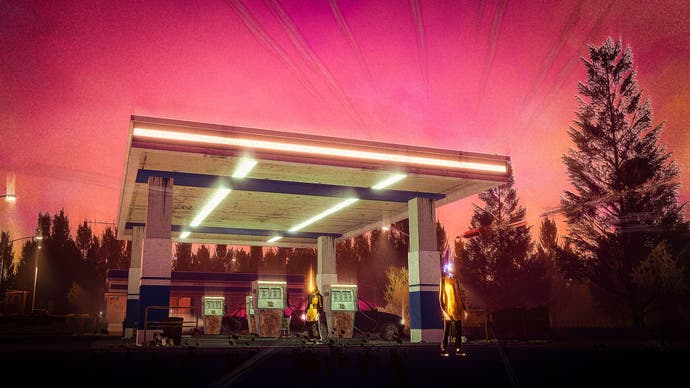
What if Sniper Elite was a low-fi conspiracy-fuelled shooter with multi-kill mechanics reminiscent of pinball or the Crash Mode from Burnout? Well, you’d get something like Children of the Sun, an indie shoot-’em-all-up that’s part shooter and part puzzle game. Crouched from afar, its your job to line up a shot – and its subsequent richochets – that take out all of your targets, as you uncover why your mysterious main character is taking revenge on a deadly cult. The visuals and story – such that there is – are enjoyably pulpy, while the quick-fail-and-retry gameplay allows you have just one… more… go… – Tom Phillips
Read more in our Children of the Sun review
42. Homeworld 3
Platforms: PC
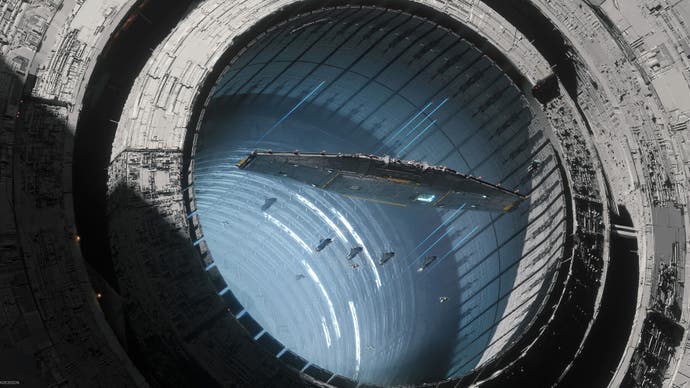
Ah, the weight of expectation. 25 years after the first genre-defining Homeworld game, nine years after a successful remaster and five years after a crowdfunding campaign for a sequel, Homeworld 3 seemed to have its course set to become another intricate, galaxy-spanning real-time strategy game set in 3D space. What emerged from hyperspace was in some ways the game I dreamed of: a fun evolution of what came before, with new factions and a new setting, yet familiarly iconic ship designs emitting primary-coloured exhaust trails, producing realistic battle chatter amongst beautiful nebulae backdrops as a Middle Eastern inspired ambient electronica plays. A new focus on maps with megalithic structures suitable for cover or flanking was a smart twist, providing a new stage for the game’s excellent art direction and making for more interesting battle scenarios too.
Yet an ultimately disappointing campaign that focused on a handful of poorly realised characters stood in stark contrast to the epic, survival-of-a-people tales that made the first games so well-loved, and depressed review scores to the point that the game’s extensive post-launch development plans were halted just four months later. The game’s campaign and its roguelite War Games mode are still well worth playing, with the final 1.3 patch providing some much-needed balance and gameplay improvements, but I fear it may be the final chapter in this iconic series. – Will Judd
Read more in our Homeworld 3 review
41. Botany Manor
Platforms: PC, Xbox One, Xbox Series X/S, Switch
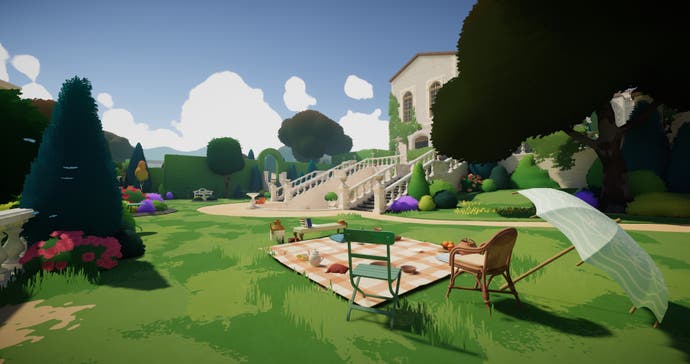
Puzzle games about growing plants have been popping up in abundance in recent years, but Botany Manor is almost certainly one of the best specimens yet of this particular sub-genre. Set inside an enormous and picturesque Somerset manor, amateur botanist Arabella Greene takes it upon herself to study and recreate rare strains of peculiar plants that will only bloom under the most specific and wonderfully whimsical circumstances. Like the flower that needs the exact wind temperatures of its mountain home, or the rust-cleansing river weed that will only bloom at a certain water temperature. Or the one that mimics the wing colours of a moth at a particular time of day, or the sleeping heartbeat of a specific woodland creature. As you root out each plant’s respective seed bag from around the house and try and deduce exactly what will make each one burst into life via the notes and letters and other diegetic clues you’ll find scattered around, Botany Manor reveals itself to be a surprisingly robust and artful kind of puzzle experience. It takes time, care and more than a little attention to solve these conundrums, but this game’s a grower, no doubt about it. – Katharine Castle
Read more in our Botany Manor review
40. MechWarrior 5: Clans
Platforms: PC, PS4, PS5, Xbox One, Xbox Series X/S
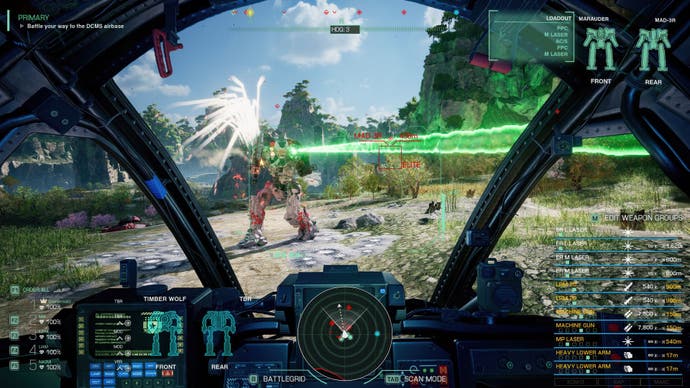
In MechWarrior 5: Clans, you are the monsters suddenly bursting out of the walls, except the walls are the edge of the known universe and the monsters are armed with several-stories-tall BattleMechs. There’s plenty here that’s familiar to players of the hugely addicting sandbox of MechWarrior 5: Mercenaries, but that game’s slow-and-steady progression of a mercenary company taking on odd jobs is jettisoned for a more engaging linear campaign through the highlights (and lowlights) of the Clan invasion of the Inner Sphere, complete with animated cutscenes replete with in-universe lingo. As agents of a technological superpower hidden away from the centuries of in-fighting and neglect faced by the rest of humanity, your advanced machinery is faster, better-armoured and hits harder than anything you’ll face from your enemies. That lets your five-member squad carve through hordes of opposition in supremely entertaining style, and gives you some latitude to experiment with weapon loadouts and skill upgrades before the game’s difficulty ramps up in the final chapters. Best of all, everything can be played in co-op if you like – and despite upgrades to AI squadmate control, subjugating the surats is always more fun with a sibkin. – Will Judd
Read more in our MechWarrior 5: Clans episode of what we’ve been playing
39. Arranger: A Role-Puzzling Adventure
Platforms: PC, PS5, Switch
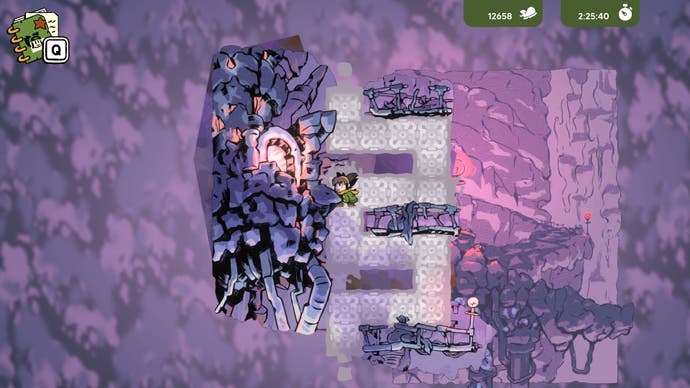
Arranger is ingenious, beautiful and deeply, surprisingly accommodating. Its premise suggests a world of genius-tier head-scratching where only puzzling’s greatest minds will succeed, but this game doesn’t just want you to get through its challenges, it wants you to feel clever too, and feel like you took everything at your own pace. These are excellent ambitions. At its most basic, Arranger offers players a tile-based world in which rows and columns move as the player does, and many objects wrap around the screen, reappearing from the left when they disappear off the right, say. Taking this idea, you’re sent off on a beautiful adventure, moving from one town to the next, solving problems, engaging in combat – you move swords and whatnot along with your rows and columns – and even taking on bosses. It’s elegant stuff, but it’s backed up with a lovely hint and skip system which means, should you want it, you can have a marker on-screen that permanently points you in the right direction, and you can hop right over any puzzle that’s annoying you. All this and some stellar writing and world-building. Arranger is a treat. – Christian Donlan
Read more in our Arranger: A Role Puzzling Adventure review
38. Fear the Spotlight
Platforms: PC, PS4, PS5, Xbox One, Xbox Series X/S, Switch
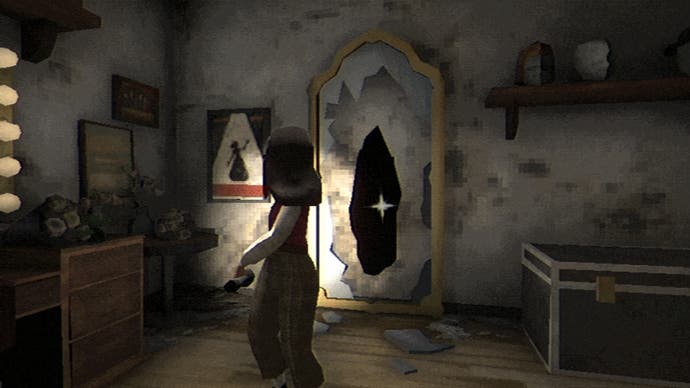
Vibes, the video game. In terms of mechanics there’s not a whole lot of complex stuff going on in Fear the Spotlight, but it absolutely nails that late 90s/early 2000s horror aesthetic. It’s a game split into two parts, parallel stories that follow on from a disastrous seance. The first is mostly set in school grounds as the protagonist attempts to find her friend and avoid the bright orange searchlight emanating from the singular baddy. Part two is more personal, centred on the life of the aforementioned missing friend, this time predominantly set in her old family home. Scarier than part one, this story leans more into Japanese horror like Ringu and Ju-On: The Curse. There’s not much of a challenge here, but the throwback puzzles and brilliant retro visuals felt like a palette cleanser much needed after years of gnarly horror designed to make you wince. – Tom Orry
Read more in our Fear the Spotlight review
37. Batman: Arkham Shadow
Platforms: Meta Quest 3/3S (VR)
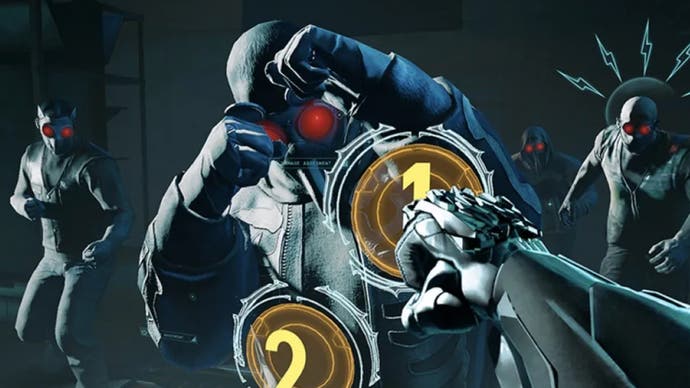
Look up. This is the slogan DC is using for its new Super Man movie. It’s also something you can do with your actual head while playing Batman: Arkham Shadow on the Meta Quest 3. Looking around isn’t new in a VR game, obviously, but it’s the first part of Camouflaj’s brilliant Batman sim. While Bruce Wayne, famously, can’t go five minutes without saying “I am the Batman,” or similar, in this game you are in fact the Batman. Never before, even in the Rocksteady games, has this feeling been truer. Key to this is the fact that Arkham Shadow doesn’t shy away from the combat we’re now accustomed to in Batman games. Yes, it’s simplified here in order to open the game up to as wide an audience as possible (you don’t have to be trained in martial arts), but it just works. – Tom Orry
Read more in our Batman: Arkham Shadow review
36. Crow Country
Platforms: PC, PS5, Xbox Series X/S
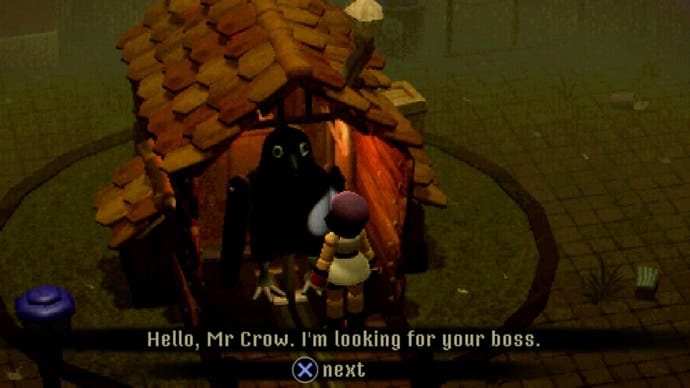
Modern games that look like retro games are having a rather elongated moment, aren’t they. One of the best examples this year is PS1-era throwback horror, Crow Country. Rather than simply rely on nostalgia through deliberately-dated, SFB Games created a game that would have slotted in perfectly back when everyone was being scared by the marvels that were Resident Evil and Silent Hill. It’s got smart puzzles, which are essential in a good survival horror, but more importantly the setting is brilliantly realised. There’s a superb sense of place here, which elevates it above the average attempt at aping games of this genre. Oh, and it’s funny, too, which is something games often fail miserably at. – Tom Orry
Read more in our Crow Country review
35. Age of Mythology: Retold
Platforms: PC, Xbox Series X/S
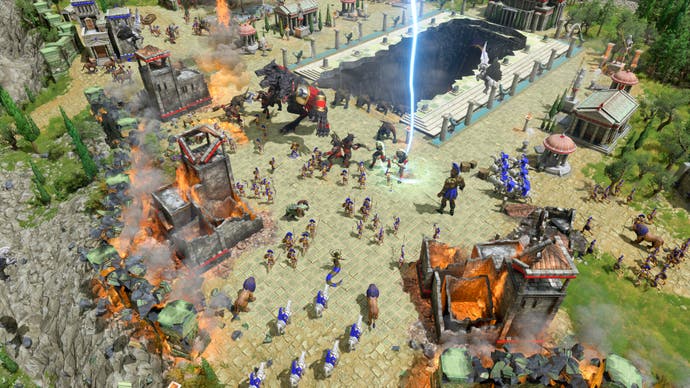
Often overshadowed by the vast success of its sibling Age of Empires, Age of Mythology is, frankly, an absolute banger of a game, a peak early-00s era RTS from the time where the ostensibly serious strategy genre started to get a bit silly. But I will always maintain that “a bit silly” is exactly what makes for a good RTS, frankly, and Retold is a fantastic glow-up, filing down the jagged, polygonal edges of the original but losing none of its off-beat charm. There are still outlandish god powers to throw around – now with cooldown timers (how modern!) rather than a single use – and still the faintly ridiculous physics to go with it. Seeing colossi and giants boinged up in the air by a meteor will never get old. Nor will a good old-fashioned comp stomp with friends against the improved AI. If you missed the original, or you loved the original, or you never quite got into real-time strategy but want to give it a try, I can’t think of another game I’d recommend first. – Chris Tapsell
34. Pacific Drive
Platforms: PC, PS5

Pacific Drive isn’t the most cooperative of games. Your first dozen or so hours will, if you’re like me, be spent cursing it (or cursing at it). And then the next dozen or so hours will, well, probably also be spent doing that. Weaving your way through the sodden forests of the pacific northwest with nothing but a banged up, possibly-haunted jalopy and a grumpy radio accomplice you will find yourself crashed, mashed, flipped, hurled, shocked, poked and bonked by various obstacles, ranging from slightly horrifying ‘anomalies’ of the Zone to the car’s boot lowering on your head – your own weaponised incompetence manifest. This game is wonderfully, hysterically sadistic, but it’s also laced with clever mitigating design – the garage, where you stop off to recover, rebuild, and make slow RPG-like progress between runs, is really the game’s beating heart – and also a scintillating, Strugatsky brothers-inspired atmosphere. One of this year’s most unique games, but also one that seems to tap right into the zeitgeist: weird physics, gallows humour, masochistism, and a requirement to press on regardless. – Chris Tapsell
Read more in our Pacific Drive review
33. Stellar Blade
Platforms: PS5
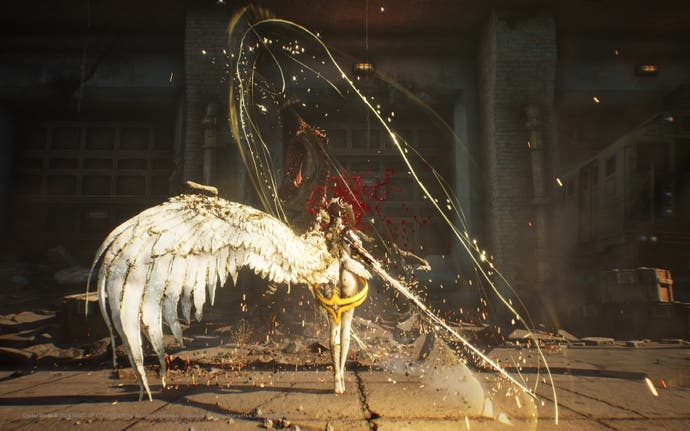
I’m torn on Stellar Blade. Having had little to no expectations for it on release, I was surprised by just how great the combat is. I don’t want to sound like a complete idiot, but I wrongly started playing assuming I’d get some fairly by-the-book hack ‘n’ slash gameplay, but in fact Stellar Blade feels less frenzied than that. It’s not souls-like, but it’s not a completely different beast to those games either. It helps that Stellar Blade looks superb, being one of the most impressive games I’ve played on PS5 in 2024 (and all the nicer on PS5 Pro). I won’t sugarcoat it, though: I’m not a fan of the frankly quite ridiculous costumes. I appreciate that there’s a market for that, but I think these designs undermine a top notch action game. – Tom Orry
Read more in our Stellar Blade review
32. Pokémon Trading Card Game Pocket
Platforms: iOS, Android

I’ll be honest, I really thought TCG Pocket was just going to be one of those ‘interactive experiences’ that really centred on pack opening, collecting pretty digital things and extracting as much money out of fans as possible. And, okay, it is sort of that– but wait, come back a sec and just listen. It’s also just a fantastic card battler. This is maybe to be expected – Creatures has been making this card game for a few decades now, after all – but there are some quietly genius tweaks to the formula that make it work so well here. Energy has been shifted from cards in your deck to a generation system, enhanced and modified by the cards you can then build decks around. Matches are faster, and somewhat inconsequential by most competitive standards – but counterintuitively, that also makes it even more fun. If you lose, it’s fine – you lost five minutes, and probably learned something valuable about the deck you built or decisions you made along the way. The interlocking systems, across chance-based elements like packs and wonder picks, to the many quests, AI and online battles, collectibles and more, are astonishingly intricate. And yes, the artwork really is quite lovely. This is one of the best games to come out of The Pokémon Company for some time – don’t write it off before trying your hand. – Chris Tapsell
Read more in our Pokémon TCG Pocket review
31. Stalker 2: Heart of Chornobyl
Platforms: PC, Xbox Series X/S
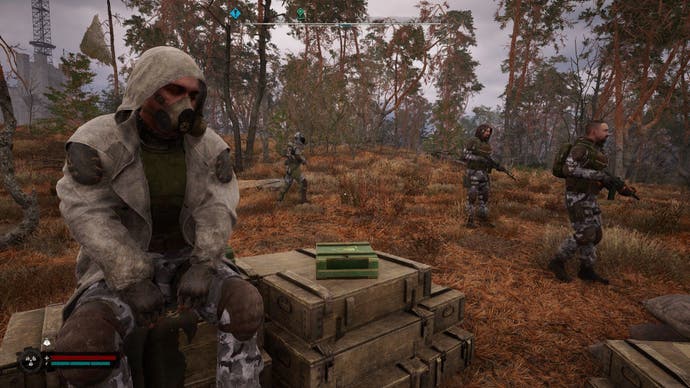
Games are often so slick, so focus grouped, and so safe these days that it’s amazing when a big game is released and it doesn’t feel like any of those things. Stalker 2 feels like a hugely ambitious indie game from 15 years ago, but with the production values of a modern AAA title. It had plenty of issues at launch (and still does after a bunch of updates), but no other game released this year matches it in terms of scope. It’s an open-world FPS, but unlike any you’ve ever played before unless you’ve played a previous Stalker game. Games don’t have to be sanded down so much they have no sharp edges in order to be worth your time and money. Stalker 2 proves that. It’s got more rough spots than Sony’s entire first-party output this entire generation. – Tom Orry
Read more in our Stalker 2: Heart of Chornobyl review
30. Dungeons of Hinterberg
Platforms: PC, Xbox Series X/S
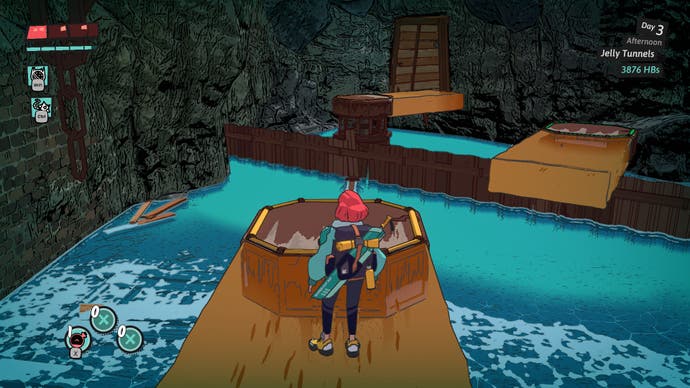
A game about escaping to the Austrian alps to simply get away from it all, Dungeons of Hinterberg will have added resonance with you if you’ve felt a little burned out recently, or if the pandemic is still faintly lingering in the back of your mind, or if you’ve just had a bit of a year. It’s probably the closest to this year’s A Short Hike, a game about the soothing atmosphere of a physical place, about presentness and mindfulness and nice strangers offering a few words of smalltalk or advice. But also just a very nice, tight, smartly designed game in itself: a mix of Persona and Zelda, mashing together environmental puzzling, playful camera perspective shifts, a bit of light third-person combat and then a soothing retreat to the local mountain village in between. If you play games for escapism, there are few this year that did it better: a dreamy, warm-hearted, timely and deeply welcome retreat. – Chris Tapsell
Read more in our Dungeons of Hinterberg review
29. Arco
Platforms: PC, Switch
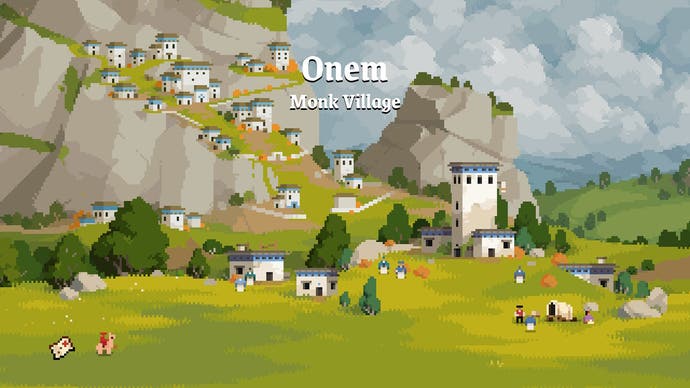
Another of the very fine, small-team indies of 2024, Arco is a gem of an action adventure game, all rendered in lovely, expressive pixel art (there’s a whiff of 2013 about it, in a good way). Smart combat focuses on short, snappy, intelligent encounters, while the vibe is wonderfully Western-meets-fantasy: a lone wanderer, an authentically South American twist on the cowboy story, a big, mysterious tree. There’s richness and texture here, condensed and refined into something compact yet powerful. – Chris Tapsell
Read more in our Arco review
28. Caves of Qud
Platforms: PC
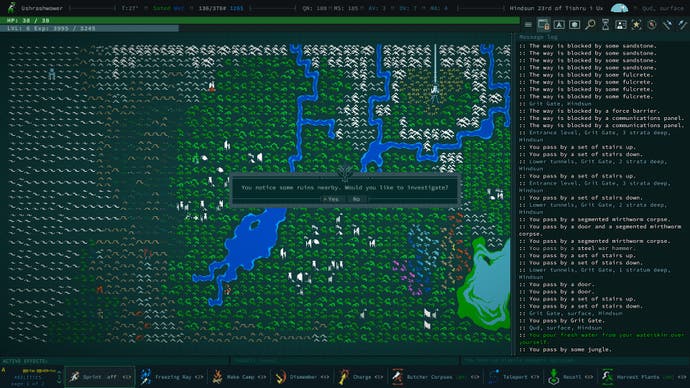
Caves of Qud is a forever game. It’s a blend of Dwarf Fortress and the original Rogue, generating a dense fantasy world and millennia of history, and then using that as a rich backdrop for some brilliant dungeon crawling.
Everywhere you look there’s something special. The art – one or two rungs away from ASCII – is gorgeously evocative of all-night sessions in old University computer labs, while the writing is poised and strange, the storytelling blends the far future and all its horrors with a landscape of ruins and strange mushrooms. Dungeons are procedurally generated but the storyline’s main beats never change, which puts the emphasis firmly on the player themselves. Who do they become? What path do they take? How many limbs and fingers do they want to replace with laser cannons? These are all excellent questions for a game to ask.
Somewhere in amidst all this stuff is a game that tugs at a concealed theme of 2024 in games. Like UFO 50 this is a game with the trappings – and some of the ideas – of the past of gaming, but which treats everything in a way that makes much more graphically lavish titles feel pretty old-fashioned. Even if you don’t think Caves of Qud is for you, give it a try. – Christian Donlan
Read more in our Caves of Qud review
27. Nintendo World Championships: NES Edition
Platforms: Switch
I honestly believe that Nintendo World Championships: NES Edition is one of the best games of the year and on the Nintendo Switch full-stop. It’s that good. I know it’s not perfect, lacking high-score leaderboards for online competition, but it’s an absolutely essential local multiplayer game for all ages. I’ve enjoyed countless hours playing this with my son, essentially showing him that despite the massive advantages his youth offers, he still can’t beat me at video games when compressed into tiny challenges.
The really special thing about NWCNE (sorry, just wanted to write something that looked like a professional wrestling franchise) is more of a side effect, really. By introducing my son to these relics of the video game world, he’s now developed an interest in playing the full games. He’s sunk hours into Super Mario Bros., Excitebike, and Metroid. That’s the power of Nintendo. – Tom Orry
Read more in our Nintendo World Championships: NES Edition feature
26. Infinity Nikki
Platforms: PC, PS5, iOS, Android
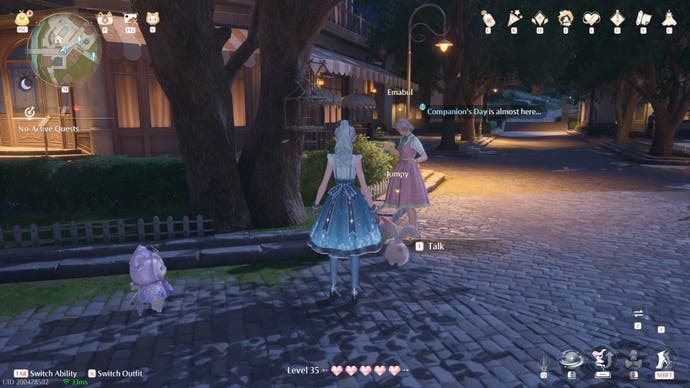
What a breath of fresh air Infinity Nikki is. If you’re tired of the usual open-worlds focused on combat, then may I suggest a trip through Miraland’s lush, fairytale landscapes instead. Where other games may have bosses to challenge, Infinity Nikki’s got high-stakes fashion battles across rooftops and spooky forests, for no other reason than simply being as dramatic as possible. But when Nikki does need to roll up her impeccably-styled sleeves to take on some mischievous creatures, then it’s in service of ‘purifying’ the poor things, not killing them.
When not exploring, or saving the world in one of the most endearingly silly stories I’ve ever heard (where fashion is worshipped in tandem with ancient gods), then just dressing Nikki up to look cute is your only real goal. And if you’re a fan of taking pictures in those cute clothes, be prepared to craft some high-quality snaps, with one of the most in depth Photo Modes in gaming.
Simple concepts, but a joyous execution of them, makes Infinity Nikki the upbeat, batty adventure that it is. – Jessica Orr
Read more in our Infinity Nikki review
25. Timemelters
Platforms: PC
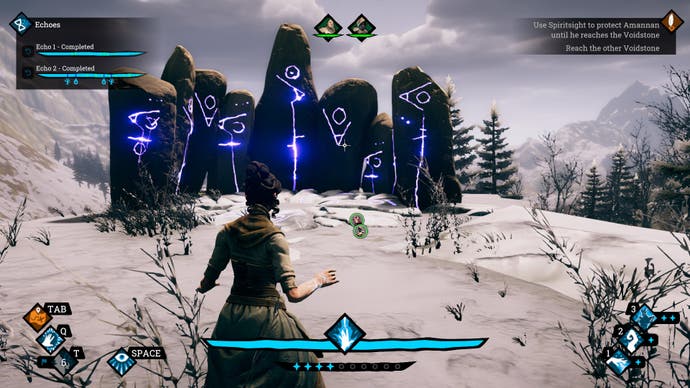
Timemelters is the work of some of the people behind Sang-Froid: Tales of Werewolves. That was a distinct blend of strategy and tower defence that had an enviable sense of its own identity. Timemelters takes the idea further and really pushes up against the limits of how many new ideas a player can handle at any time. That’s a compliment.
You’re playing as a witch in a mythical version of Scotland, but really you’re a flexible attack unit with the ability to cast spells, reverse time and record your own clones to fight against, and move through wormholes that tie the maps in non-Euclidean knots. The stroke of genius that brings it all into focus is this: you only have one hit point. If you fail at any moment in the game you’re dead, and so you really explore each map and its challenges, breaking down objectives, working out how to rethink space, and steadily becoming the kind of ingenious player you always hoped you might be. 2024 had a lot of great games, but few had as much to teach the player about their own potential as this one. And it’s brilliant fun too. – Christian Donlan
Read more in our Timemelters review
24. No Case Should Remain Unsolved
Platforms: PC
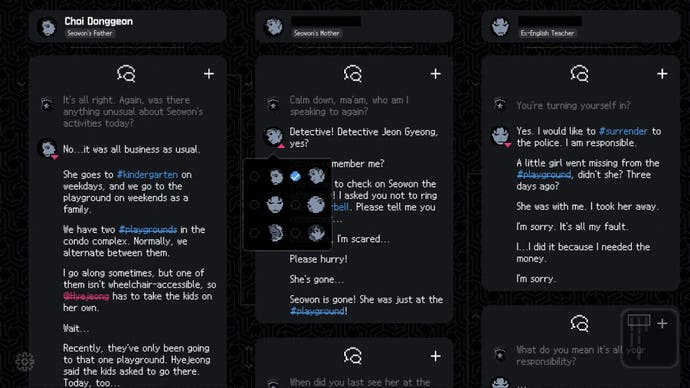
One of this year’s most compelling detective games, No Case Should Remain Unsolved is a deep dive into the fickleness and fragility of the human mind. It’s the kind of mystery game you should really just go and play and not read too much about beforehand, as saying anything about its story or finer details will veer dangerously close into spoiler territory. But the simple facts of the case are thus: you play a detective haunted by one particularly harrowing case from your youth that’s long since gone cold, and at last you’re tasked with rooting through your own piecemeal memories of all the different witness testimonies to try and get to the bottom of it. As you start reconstructing a timeline of events and matching fragments of statements to the correct speaker in the right order, you’ll gradually unearth other, hidden details of the case that constantly challenge and expand your understanding of it. But the real masterstroke of this game is how deftly it weaves its narrative, and how closely it guards its deepest and most devastating secrets. It’s masterfully executed, and a must-play for all budding detective heads. – Katharine Castle
Read more in our No Case Should Remain Unsolved feature
23. Prince of Persia: The Lost Crown
Platforms: PC, Ps4, PS5, Xbox One, Xbox Series X/S, Switch
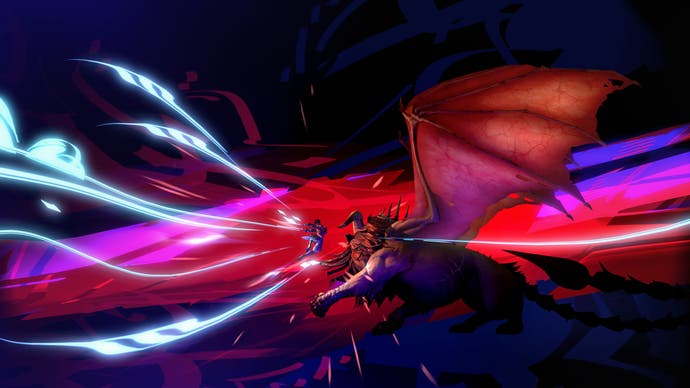
This year’s best Metroidvania and a new benchmark for the genre at large. Prince of Persia: The Lost Crown is an athletic, nimble dream of an action platformer, marrying taut and challenging traversal techniques with a mythic quest of dazzling proportions. As heroic warrior Sargon, you must save the titular prince from the sprawling, labyrinthian prison of Mount Qaf, a foreboding and ominous place that turns friend against foe and time back in on itself. It’s an enthralling adventure, and the kind of hero’s journey that feels steeped in both the series’ tradition and the modern, dynamic flair of anime and graphic novels. It also solved the genre’s ever-present problem of painful backtracking with its game-changing screenshot tool, letting you pin images of locked doors, puzzles or anything else that caught your curiosity directly onto the map. Together with its rigorous and skilful platforming, this is a staggering achievement from the Rayman Legends team, and it’s a travesty that we won’t get to see more of it in the future. – Katharine Castle
Read more in our Prince of Persia: The Lost Crown review
22. I Am Your Beast
Platforms: PC
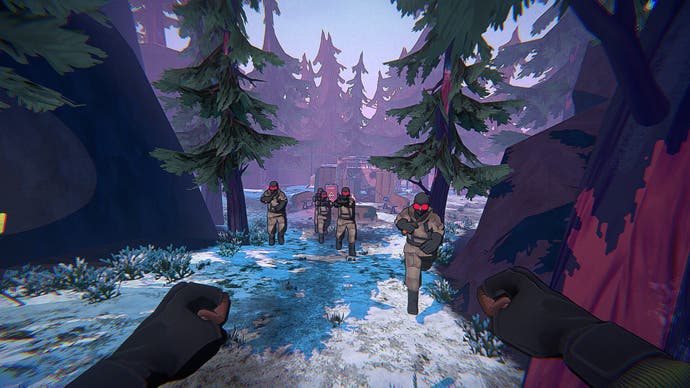
There’s something about I Am Your Beast that reminds me of the old Batman TV series’ comic book punch effects – BAM! ZIFF! BOFF! FWIP! – only with less of the camp and much more angst. One of several games to come from Xalavier Nelson’s Strange Scaffold this year, which is arguably less a typical development studio and more a venture, allowing different devs to come in, put their stamp on something, and quickly turn around a tight, snappy, few-hours-long game with an exceptional premise that carries it well beyond what you might expect for the budget. Of those, I Am Your Beast is probably the snappiest and the tightest, a steely revenge flick with deeply cathartic, thunderously hard-hitting action to back it up. KAPOW! – Chris Tapsell
Read more in our I Am Your Beast review
21. Warhammer 40,000: Space Marine 2
Platforms: PC, PS5, Xbox Series X/S
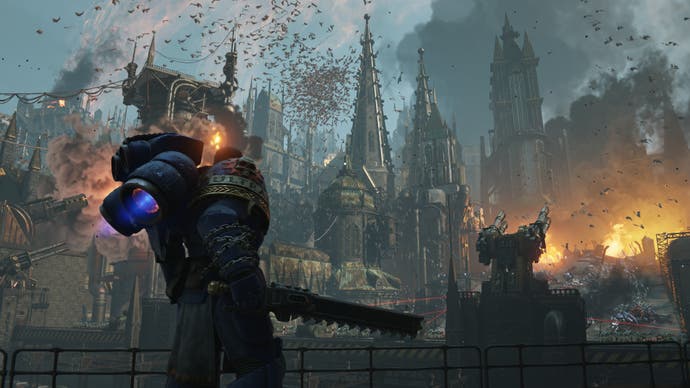
There’s been growing chatter this year about the death of double-A games, which is interesting. For one, I’m pretty sure we had that same conversation some time around 2013. But more than that, I’m also just not entirely sure it’s true. Maybe double-A games haven’t gone away, so much as just become much more expensive, in the same way triple-A budgets have ballooned. Either way, consider Space Marine 2, a game that is double-A in spirit and nature, and just about every sense other than how much it actually cost.
I have to emphasise: that is intended as a very big compliment. Space Marine 2 is a joy in co-op, particularly against AI hordes but also in its meaty, gristly, simple pleasures campaign. It’s very pretty, richly detailed, but also just has a teeny tiny whiff of harmless jank to it around the edges, in those distant hordes and over-the-top explosions. And it’s also thoroughly, utterly committed to the bit. This is an exceptionally 40k game, rich with little details – lore for the lore gods! – and ripe with gothic, dark future atmosphere. Coupled with little Doom (2016) inspired mechanical hooks, like its parry and execute system, and it’s an absolute winner. The second best game about getting together with pals and shooting hundreds of xeno scum to bits this year. – Chris Tapsell
Read more in our Warhammer 40,000: Space Marine 2 review
20. Indika
Platforms: PC, PS5, Xbox Series X/S
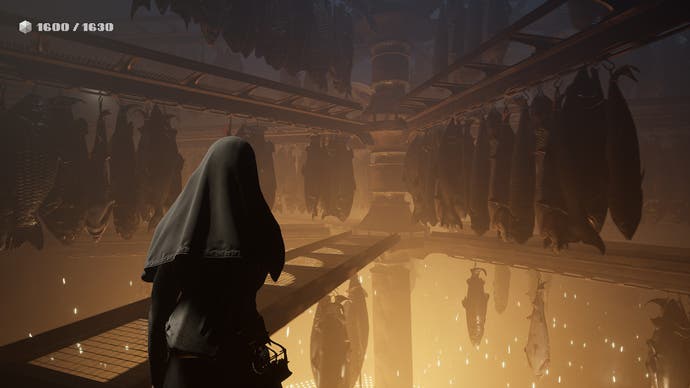
Strange, stylish, and (mostly) successful – Indika is maybe the most A24 video game of this past year. There’s a lot going on here, but it’s hard to get past the presentation – and the impact that utterly striking presentation has, in all its forms, on the game as a whole. Think morphing, switching, surprising camera angles and movements, or sudden snaps to entirely new perspectives or art styles. Think deeply thoughtful character animations – Indika chews her nails and looks around skittishly when left to idle. Think bicycle sprints and thorny takes on religion and oppression. While the actual mechanics themselves – effectively, a bit of platforming and light puzzle-solving – don’t burst with novelty, there’s still a serious lesson here for a medium that has, let’s face it, been astonishingly slow to evolve when it comes to the good old camerawork and direction behind visual storytelling. That lesson is in just how much can be wrought from a game with some proper thought – behind how and where you put your camera and what you can see on screen, but also what you choose to do with it and why. – Chris Tapsell
Read more in our Indika review
19. Tactical Breach Wizards
Platforms: PC
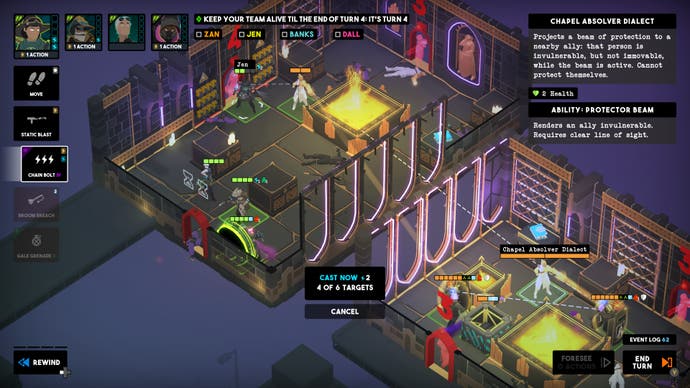
There are many very clever people working in video games, and one of those especially clever ones is Suspicious Developments’ Tom Francis, developer of Tactical Breach Wizards (and I’m not just saying that because he’s written for Eurogamer). Tactical Breach Wizards is a deft, compact, and deeply witty take on turn-based tactics, setting you up as a bearded, wizened SWAT team that begins each scenario with a wonderful, thunderous boom through the front door. From there you need to clear a tiny, intricately arranged room, Into the Breach-style, using clever systemic devices – into the wall! Out the window! – to shunt and blast enemies around the arena as you go. As Matt Wales put it in his excellent review, “Tactical Breach Wizards is absolutely obsessed with defenestration”. Sold! This is the stuff of tactical dreams. – Chris Tapsell
Read more in our Tactical Breach Wizards review
18. Frostpunk 2
Platforms: PC, with PS5, Xbox Series X/S in 2025
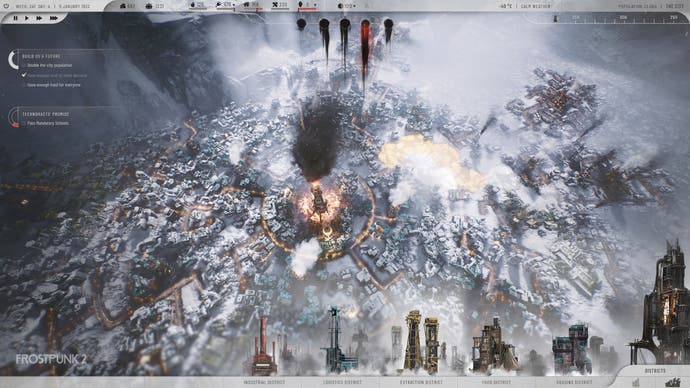
The first Frostpunk went down as something of a cult favourite amongst the PC strategy hardcore for its grizzled take on settlement survival. The second takes things further: difficult decisions are even more difficult. Politics, split curiously into sets of opposing values: Progress and Adaptation; Merit and Equality; Tradition and Reason. There’s a sense of breathlessness to it – of constant forever-struggle, a civilisation perpetually on the edge of strife – and at the same time one of pensive depth. If grand strategy games have always felt a bit too detached for you, too ‘God’s eye’ and geopolitical, then zoom right in onto this one. This game is right there on the ground, in the dirt and soil and snow, and the bloody choices of how you get by against the odds. It’s one of the best strategy games in some time. – Chris Tapsell
Read more in our Frostpunk 2 review
17. The Rise of the Golden Idol
Platforms: PC, PS4, PS5, Xbox One, Xbox Series X/S, Switch, Netflix
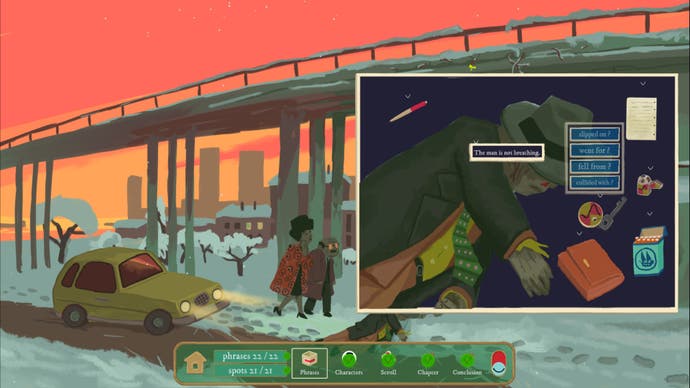
The Case of the Golden Idol was always going to be a tough act to follow, but developer Color Gray Games has truly outdone itself with this ambitious sequel. Catapulting the timeline forwards 300 years to the paranoia-drenched 1970s, this tale of corporate conspiracy and murders most fowl captures your attention at every step. Technically, it’s a little lighter on the blood and gore this time round, with some scenes simply depicting brawling TV contestants, exploding outdoor cinemas, or even poetic dances with secret, hidden meanings to decipher. But the crimes and mysteries themselves are no less compelling for it, and deducing who did what, why and how in each of its freeze-frame tableaux remains as tantalising as ever, especially now its dedicated windows and parcelled out puzzle boards make them more approachable than ever to crack open and read between the lines. It’s smartly done, and one of the most satisfying mystery games of 2024. – Katharine Castle
Read more in our The Rise of the Golden Idol review
16. Kunitsu-Gami: Path of the Goddess
Platforms: PC, PS4, PS5, Xbox Series X/S
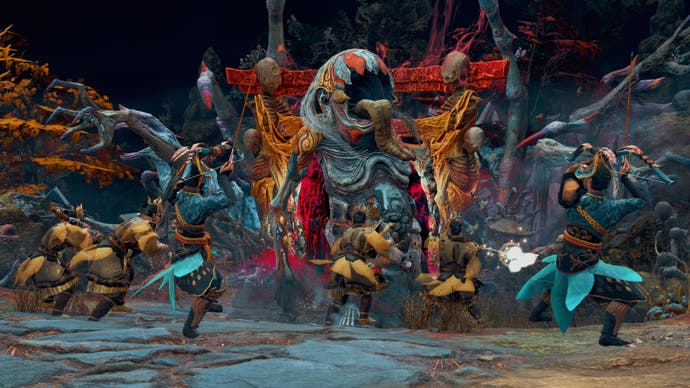
Capcom has been firing on all cylinders lately, and its mythological romp through the demon-infested torii gates of Kunitsu-Gami is no exception. This action-heavy strategy game is a real feast for the senses, combining its athletic and kaleidoscopic kagura dance combat moves with a challenging tactical core of cerebral tower defence. The goal is to safely escort the priestess Yoshiro through the cursed and corrupted towns and hollows of a mountainside community, defending her from waves of strikingly gnarly demons both as her chief guardian Soh and the gaggles of recruitable villagers that can be assigned different roles and jobs to best hold down the fort. Long range archers and brawny woodcutters are eventually joined by powerful sorcerers and teleporting ninjutsu, but the demons you’ll face also evolve in kind, as do the settings, objectives and obstacles you’ll encounter along the way. There are so many fresh ideas to get to grips with in Kunitsu-Gami that you’re never short of creative challenges to overcome, and the energy and enthusiasm it presents them to you with is always utterly infectious. A truly wild ride from start to finish. – Katharine Castle
Read more in our Kunitsu-Gami: Path of the Goddess review
15. Lorelei and the Laser Eyes
Platforms: PC, Switch
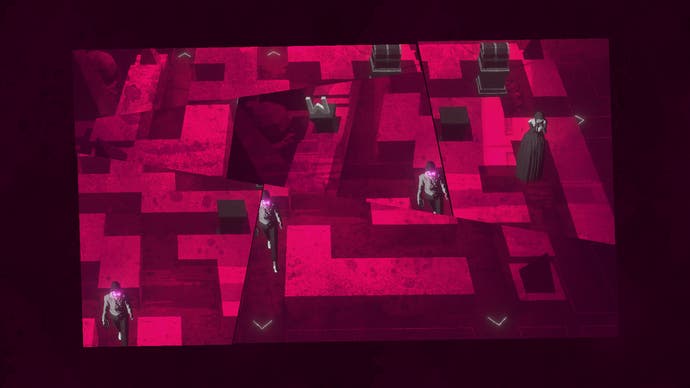
You should always make time for a Simogo game. Lorelei and the Laser Eyes takes a sharp turn from the breathless, bubblegum electro-pop of platformer Sayonara Wild Hearts, the studio’s previous, instead opting for quiet, moody, monochromatic puzzle-solving in a strange, vacant mansion in the woods. Some of those puzzles can be a frightful challenge – this one’s a notebook-and-pen joint, and you’ll be much happier if you give yourself over to that fact from the off, rather than resist it out of pride, as I always find myself doing at first. You make time for a Simogo game, but this is one you need to carve out hours for, not only to play but to sit with, puzzle over, examine from all sides. Like a good old puzzle macguffin, but also like the curious objects of art this game builds its web of brilliant clues around. – Chris Tapsell
Read more in our Lorelei and the Laser Eyes review
14. UFO 50
Platforms: PC
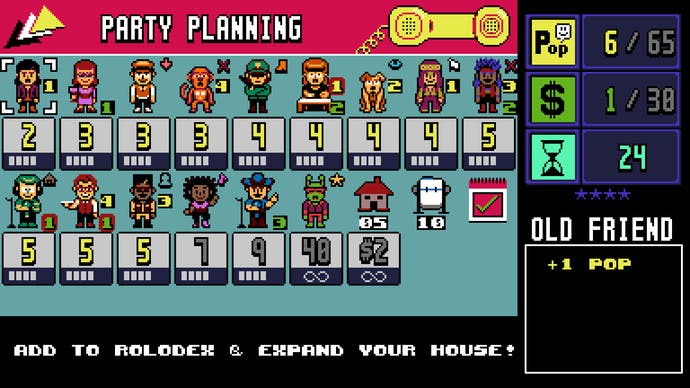
Following up a game like Spelunky must have been daunting, so in many ways Derek Yu’s response makes total sense. He got a bunch of talented friends together and slowly they all made something weird and unique. UFO 50 isn’t a game so much as it’s the back catalogue of a console that didn’t actually exist, but might have.
Real talk: it’s overwhelming at first. All of UFO 50’s games are complete experiences and they’re all unlocked from the off. That means when you load the game up for the first time you have a daunting decision to make. Where to start? But as you pick a path and move outwards, shifting from RPGs to puzzle games to strategy games – so many strategy games! – you start to realise it’s not necessarily about getting the most out of everything, it’s about finding the games that click with you and exploring them deeply, and then moving on to something new.
Over time I suspect every game will have its moment. Of all the games on this list, this is the one I think you’re meant to live with for a decade or more, really getting the most out of it. 50 games, weird interconnected lore, different art styles and a gorgeous approach to pseudo-history. As follow-ups to one of the greatest games ever made go, it’s hard to fault. – Christian Donlan
Read more in our UFO 50 review
13. The Legend of Zelda: Echoes of Wisdom
Platforms: Switch
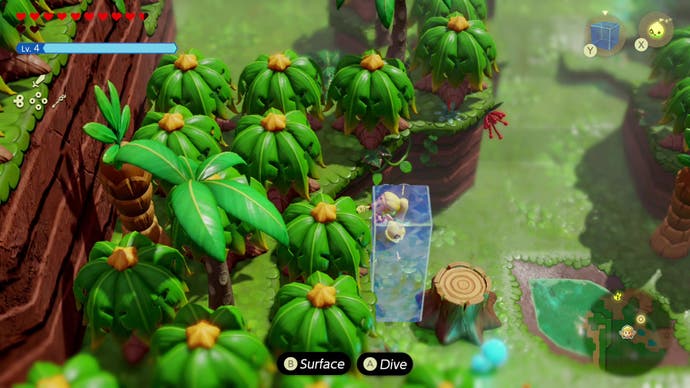
Three years ago, it would have been hard to fathom that the natural successor to games like Deus Ex, Dishonored and other renowned immersive sims would have been Nintendo’s The Legend of Zelda series. But just as Tears of the Kingdom amply proved last year with its anything goes Ultra Hand contraptions, Nintendo’s creative spirit has only grown stronger over time, and the bevy of magical building blocks at your disposal in this year’s Echoes of Wisdom is a brilliant extension and evolution of that particular school of problem solving. Zelda makes for a highly winning heroine in her first proper outing as series lead, and the way she’s able to repurpose everything from beds and children’s trampolines right up to the most fearsome monsters that have terrorised Link across 30-odd years of adventuring to overcome the trials in front of her makes this one of the most daring and innovative Zelda games to date. It confronts what the future of the series might look like without a sword-swinging hero at the helm, and it does so with inventive and elegant ingenuity. Here’s hoping it’s not another 30 years until Zelda gets to reprise her stunning debut role here. – Katharine Castle
Read more in our The Legend of Zelda: Echoes of Wisdom review
12. Balatro
Platforms: PC, Switch, PS4, PS5, Xbox One, Xbox Series X/S
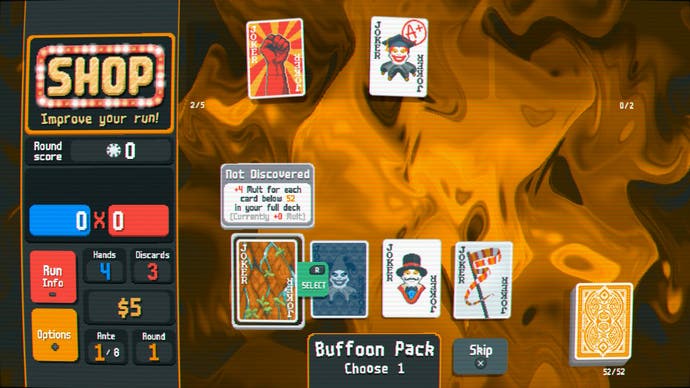
It’s the game that’s been on everyone’s lips (and brain, and console, and phone and practically every device going) since it took the world by storm back in February. Balatro has been a force of nature this year, captivating the world with its roguelike poker games that make cheating and gaming your deck the main event. Whether it’s amping up the score of your hands by exploiting all manner of special effects from its deviously conceived Joker cards, or juicing the numbers with arcane twists via booster packs of accompanying celestial buff cards, Balatro is melting pot of cunning creativity – a feeling that’s only enhanced by its wonderfully woozy music and hypnotic, swirling backgrounds. The aim, of course, is to manipulate your limited number of playable hands to beat the high score blind offered by your opponent. But as the ante goes up each round, so too do the number of zeroes on the end of those score targets, requiring all the more tactical manoeuvring to keep your run going. It’s a work of marvellous depth and winning simplicity, and rightly one of the best and most memorable games you’ll play this year. – Katharine Castle
Read more in our Balatro review
11. Dragon’s Dogma 2
Platforms: PC, PS5, Xbox Series X/S
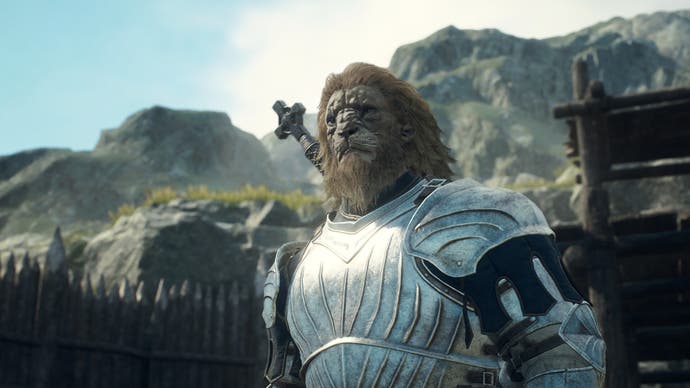
The original Dragon’s Dogma came out at the tail end of a console generation that, frankly, everyone was sick of. It’s not that we didn’t love the PS3 and Xbox 360, but they were knocking on for seven years old at this point which back then, when Moore’s Law was still holding strong, made them the gaming hardware equivalent of a still functioning Roman aqueduct: impressive, and beautiful, but relics. Wholly inadequate for modern challenges. Probably leaking somewhere.
And so Dragon’s Dogma wasn’t quite the game that had been envisioned. Features were cut. Compromises were made. Par for the course at the best of times, but stuffing Capcom’s Elder Scrolls into a measly half gig of RAM would have been gruelling. Still, it managed to impress: justifying a huge DLC expansion, several re-releases, and a Japan-only MMO. The business, alas, remained unfinished. When work started on a sequel, the mission was plain: do it properly this time.A larger and denser map. More settlements. Two capitals. A beast race to rival the world of men. Richly drawn NPCs and better quests. An expanded pawn system including a controversial but frankly brilliant meta-game in the form of a deadly disease that spread between users. Dragon’s Dogma 2 delivered where the original game had to pull back, bringing to fruition a singular vision that had eluded its creators before, finally running on hardware that could do it justice. As long as you had a VRR TV. Look, shut up.
It’s the decade-long chasing of that vision which impresses the most. There isn’t anything quite like it: quests aren’t checklists, they’re arduous journeys into an untamed wilderness, where you can feel civilisation slipping away with every stride. Its landscape is unforgiving, fast travel only barely exists and requires effort to arrange, and night means night: travelling in darkness means danger and no visibility, as opposed to everything being normal but tinted blue, as night time so often manifests in other games. But there is beauty in the inhospitable. Grand vistas, forests as dense as real life. And this game has the most realistic mountains I’ve ever seen outside of literally the Scottish highlands: they are emphatically there. Intimidatingly tall. Impossibly wide. Unconcerned about spoiling your view, infinite draw distance be damned. There are mountains and you will look at them.
In the time between Dragon’s Dogma and its sequel, the RPG landscape has undergone several game-changing revolutions. The cultural dominance of Soulslikes mercifully peaked and waned. The likes of The Witcher 3 and Zelda: Breath of the Wild caused enormous shifts in world design that are still massively evident in new and upcoming games. But for Dragon’s Dogma 2, all that might as well have never happened. It is entirely unmoved by all the strides that have been made in This Sort of Thing, seeking only to be the best version of itself. The genesis of the project may have been Capcom’s desire to have its own competitor to Oblivion and the like, but it achieved something much more worthy than that: it finally became Dragon’s Dogma. – Jim Trinca, Destroyer of Word Limits
Read more in our Dragon’s Dogma 2 review
10. Metaphor: ReFantazio
Platforms: PC, PS4, PS5, Xbox Series X/S
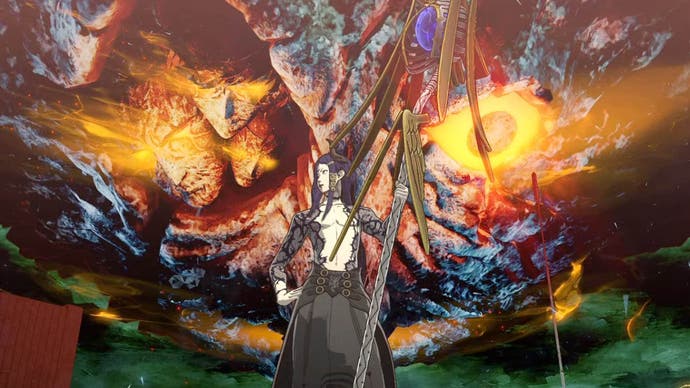
In a year of political elections and excellent RPGs, there couldn’t be a more 2024 game than Metaphor: ReFantazio. From Atlus, creators of the Persona series, it shifts setting from high-school drama to epic fantasy and bases its narrative on an election to restore justice to the world and prevent a dictator from brainwashing the population. It’s a celebration of diversity as well as an ode to the RPG genre, with its varied characters and anti-prejudice themes wrapped up in a smart Archetype class system and nods to 90s classics.
Above all, it’s a damn fine RPG in its own right. Building on the premise of the Persona games, its calendar structure expands into a heroic adventure, its menus are exquisitely designed, and its operatic soundtrack includes one of the best battle themes ever. Its turn-based combat, meanwhile, is fast and thrilling, its Archetype system full of depth, and its plot folds in on itself to interrogate the very meaning of what a fantasy story can be. Metaphor: ReFantazio is grand and poetic and enchanting, but it’s also a game full of hope for the future – something we could all use a little of this year. – Ed Nightingale
Read more in our Metaphor: ReFantazio review
9. Thank Goodness You’re Here!
Platforms: PC, PS4, PS5, Switch
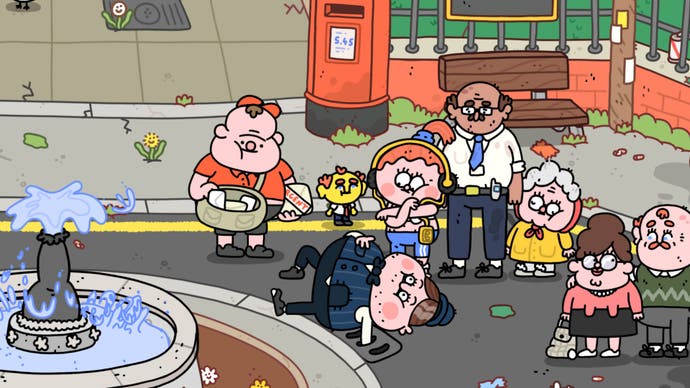
When I first played Thank Goodness You’re Here! as a brief demo out at GDC, I worried it might just be a game about silly jokes and slapping people. Then I played more of it and realised it is just a game about silly jokes and slapping people, and that’s brilliant. There’s a mix of all sorts here, Beano and Aardman Animations, and that very specific, red-faced, lip-puckered, Matt Berry sense of humour (you know what I mean just from that, I’m sure. And yes he is also in it). Of the many games released this year that lasts just a few hours, and only costs a few bob, this is right up there. Games can be oddly serious business; maybe it’s time to treat yourself to a cheap laugh for a few hours instead. – Chris Tapsell
Read more in our Thank Goodness You’re Here! review
8. Mouthwashing
Platforms: PC
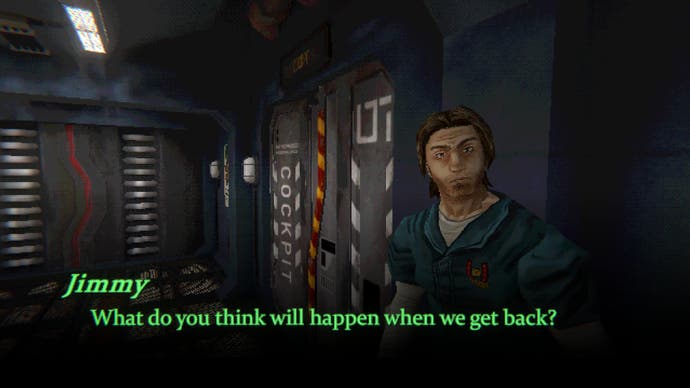
We certainly haven’t been short of great horror games this year, but few have captured the 0-60mph unravelling of the human mind under pressure in quite the same way as the brilliantly surreal Mouthwashing. You know from the start that your spaceship hauler and the rest of your crew are doomed – you’re the one, after all, who sets their collision course in motion. But as time flips between the before and after of this pivotal moment, we get to see how it all started, how it gradually starts to fall apart, and then the violent and sudden rupture of multiple psyches all at once. Mouthwashing delights in wrong-footing you at almost every breath, but it moves at such a brisk and bracing pace that you can’t help but feel enthralled to it. Nothing is as it seems on this cursed ship, and its tight quarters and corridors morph and bend to brilliant effect to mirror the crew’s deteriorating mental state. It’s also not afraid to have a good laugh at itself either, as reflected by its punchy, witty script and some particularly dark comedic interactions you can have with the near-mummified captain Curly. There’s simply nothing else quite like Mouthwashing out there right now, and it’s downright refreshing. – Katharine Castle
Read more in our Mouthwashing review
7. Final Fantasy 7 Rebirth
Platforms: PS5
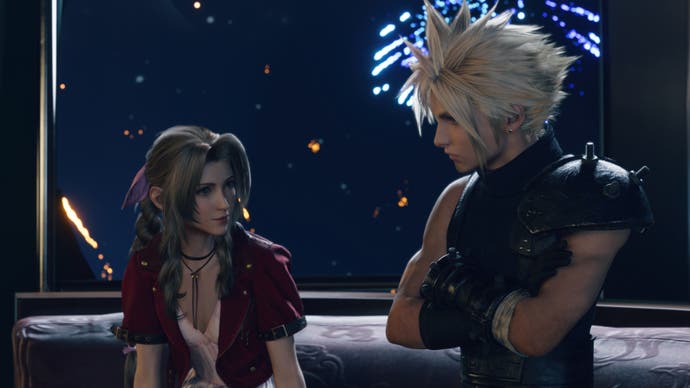
What is the purpose of a remake? How do you balance old and new, while preserving the thrill of the original game? These are questions Square Enix is exploring with its Final Fantasy 7 Remake trilogy, with Rebirth proving a divisive middle entry. While some of its narrative changes have appeared convoluted, they’ve certainly got players talking. Simultaneously, the richly detailed open world, characterful storytelling, and beautiful performances have expanded upon the beloved original, bringing its story to life in ways players in the 90s could only dream of.
And while it only represents one part of a broader trilogy, it’s a brilliant RPG in its own right. Combat is a smart mix of real time and command-driven action, its extensive soundtrack is absolutely killer, and it’s (perhaps overly) stuffed full of things to do: from chocobo racing, to monster hunting, to dancing and piano playing, to the utterly absorbing Queen’s Blood card game. Rebirth presents an entire world for Final Fantasy fans to lose themselves in while preserving the original’s tonal shifts from dark sci-fi conspiracies to bizarre characters, camp cutscenes, and the palpable homoerotic tension between its leads. Square Enix went with a maximalist and flamboyant approach to gaming remakes, which certainly worked in its favour. – Ed Nightingale
Read more in our Final Fantasy 7 Rebirth review
6. Dragon Age: The Veilguard
Platforms: PC, PS5, Xbox Series X/S
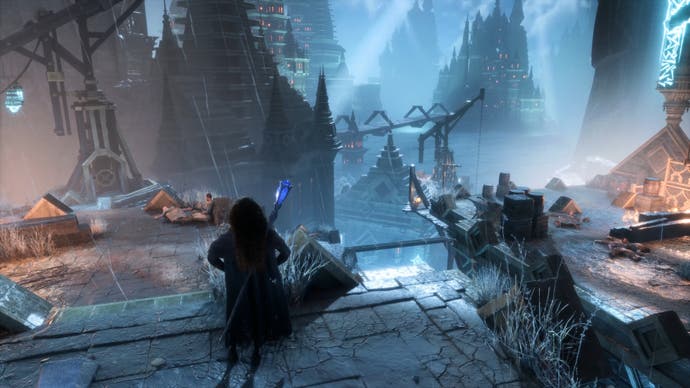
When I think of Dragon Age: The Veilguard, I think of its journey to release – and the relief I imagine its development team at BioWare felt seeing the project finally launch, to a generally positive reception, after a sometimes-tortuous 10 years. Veilguard is by no means a perfect game, and there are moments where a decade of witness marks are visible. But as much as it is a different proposition to Dragon Age: Origins – unsurprising, coming some 25 years later – and as much as it stands somewhat in the shadow of last year’s genre-defining Baldur’s Gate 3, Veilguard still stands tall, strengthened by its similarities to other BioWare greats.
In Veilguard I can see the character work of Mass Effect 3 and Citadel, particularly in the brilliant Davrin and Emmrich, and the ambition to build towards a thrilling conclusion of a kind we’ve not seen since Mass Effect 2. It is the developer’s most enjoyable adventure, with brilliantly designed environments that expand over time, and certainly BioWare’s most technically stunning and beautiful effort to date. It is a return to form, and makes me excited once again for BioWare’s Mass Effect team to build on these foundations next. – Tom Phillips
Read more in our Dragon Age: The Veilguard review
5. Animal Well
Platforms: PC, PS5, Switch
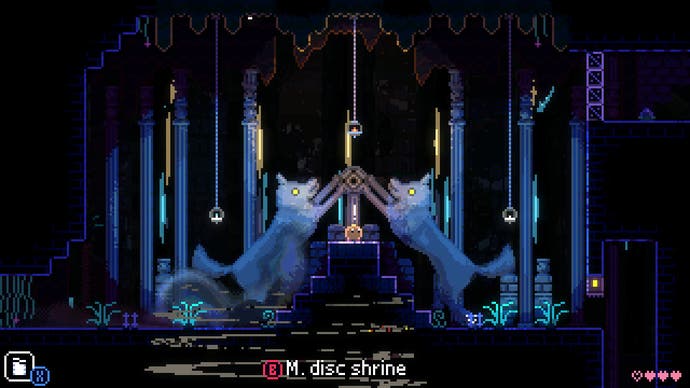
Animal Well is the kind of game you dream about. It offers a midnight world filled with nature and strange ruins, but it’s also dense, complex, and filled with unlikely secrets. It’s one of those special pieces of art that lives with you for such a long time that it starts to feel like a companion. It encourages you to work out how it thinks.
And yet on the simplest level it’s pretty straightforward. It’s a Metroidvania in which you explore a large, interconnected series of grottoes using new tools to open up new paths. But the tools are brilliant in their mundanity – a frisbee, a slinkee, a yo-yo – and the ways you use them are constantly changing. Mechanically there is a strong sense that you’re following in the designer’s footsteps, finding the potential in your oddball arsenal in the same way that they did.
The game’s world is constantly unfolding, and offering new opportunities and revelations to those who learn how to look for them. It’s partly about pattern recognition and partly about taking really good lateral punts at things – often your weirdest impulses will lead to something good.
Clever as this stuff is, when it slowly fades from memory, what remains is pure atmosphere. This is a pixel-art world ripped straight from the early days of home computing, with all the idiosyncrasies that suggests. You’re not alone in the depths either, you’re surrounded by beautifully animated, playfully designed animals who share the caves and walkways with you. We loved Animal Well when we first played it – now, more than anything, we wish we could experience it for the first time again. What a beautiful thing this is. – Christian Donlan
Read more in our Animal Well review
4. Silent Hill 2 Remake
Platforms: PS5, PC
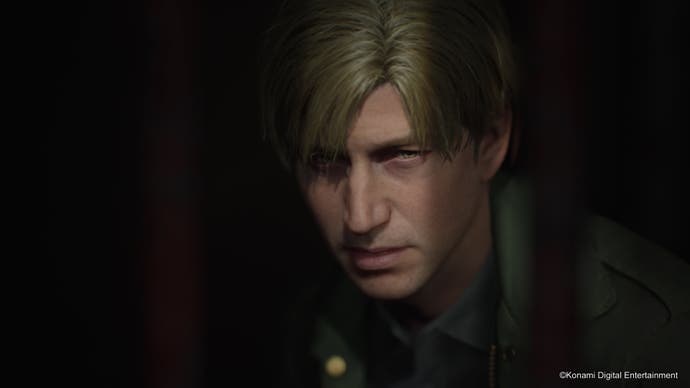
How do you even begin to build on something as exactingly crafted as the original Silent Hill 2? Every step, every rhythm, of protagonist James Sunderland’s oppressive journey through the infamously foggy town is so imbued with underlying meaning, so key to understanding the larger picture, that meddling with it too much is liable to bring the whole thing crashing down. But developer Bloober Team’s deft Silent Hill 2 remake is quite extraordinary, not only modernising the beloved survival horror classic with intelligent mechanical finessing and a beautifully forlorn makeover but expanding and enriching it in genuinely additive ways.
It’s a remake of incredible balance, fiercely reverent to the original but unafraid to be bold. It slavishly hits every story beat, every iconic moment, except where there’s room to surprise; dialogue is barely changed, yet stellar performances find new emotional depths; anticlimaxes are reworked into unforgettable crescendos; it brings clarity without ever losing its sense of mystery; and, brilliantly, it even cheekily canonises an age-old fan theory, allowing this new version of Silent Hill 2 to harmoniously coexist with the original along the same timeline. But more than anything, it plays beautifully. Bloober skilfully explores new spaces within the original’s immovable structure, all while keeping masterful control of tone – and its bereft malevolence reaches some genuinely terrifying extremes. That the studio also manages to do all this with a gentle sense of fun, and makes one of gaming’s most wrenching closing acts somehow even more devastating, speaks volumes. – Matt Wales
Read more in our Silent Hill 2 Remake review
3. Helldivers 2
Platforms: PC, PS5
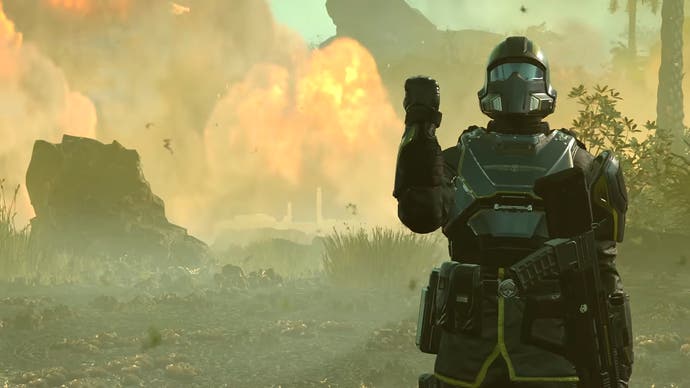
There’s a case for a lot of games on this list being the game of 2024, but I think Helldivers 2 might be the one that pips it. Helldivers 2 released at the height of the industry’s period of catastrophic layoffs, as publishers scrambled to adapt to a changing, post-pandemic industry and as analysts went in desperate search of answers for what, exactly, makes for success. And Helldivers 2 had the answer: gameplay, above trends and fashions and not-so-sure-things, has always been king – and great gameplay comes from invention first, from giving developers time and space and the means to take a gamble. In this case, developer Arrowhead’s great invention was to mix the comedic brilliance of its more niche twin-stick efforts – the likes of Magicka and the first Helldivers – with an ingeniously novel concept: a “Game Master”, in the now-infamous Joel, who planned and responded in real time to the efforts of the playing public, pulling the strings of the game’s galactic war from afar.
The result is a kind of grand, divine comedy playing out across battlefields, regions, and planets. A sense that this whole thing is a bit of a prank – that “robot Vietnam” is very much an intentional nightmare, that just as one planet is saved as a result of Herculean communal effort, another will be plunged into a far worse conflict of its own. But also that you’re still in on the joke – mashing in Komani code-style combos into my controller to call in an airstrike, complete with frantic, finger-pointing ‘beep boop beep’ animations in-game, never fails to crack me up. Nor does ‘accidentally’ landing my drop pod right on a mouthy teammate’s head. It’s masochistic, darkly funny, creative, playful, strategic, thematically aligned, anti-fascist, mechanically tight as anything and indisputably new. If we must still insist on funding or designing games by formula, fine – give that one a try on for size. – Chris Tapsell
Read more in our Helldivers 2 review
2. Astro Bot
Platforms: PS5
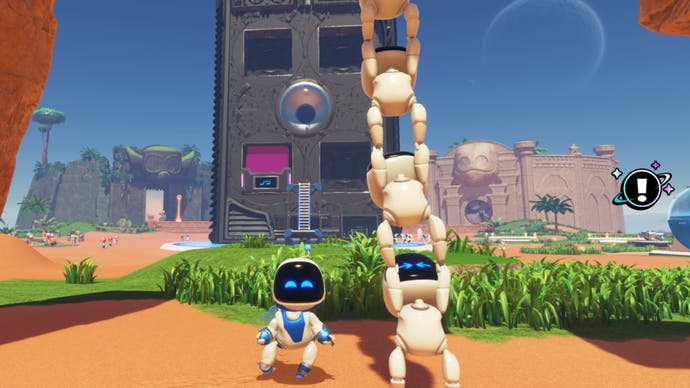
I’ve described Astro Bot as “mid-tier Mario”. You might see that as being negative and unnecessarily harsh on what is a wonderful, joy-filled video game, but that’s not my intention. If I told you that I’d make you wealthy, but only as wealthy as a mid-tier billionaire, well, I doubt you’d be upset (other than the new found stress of needing to work out how to use that money responsibly). Mario has been so far ahead of the competition in the 3D platforming space that being mid in this context is a rather incredible achievement. Sony now has a giant of the genre and as a result I now have more confidence in the industry to care about it once again.
Being popular does matter, but sentiment counts for something too when you’re building a brand. With Astro Bot Sony has made people feel good about the PlayStation. Not just in the current moment, but over their lives with the console. Big budget blockbuster narrative experiences have won PlayStation awards and millions of users, but Astro Bot made me (and many others) connect on a fundamental level. It’s fun to play video games. I didn’t think I needed to be reminded of that, but I guess I did. – Tom Orry
Read more in our Astro Bot review
1. Indiana Jones and the Great Circle
Platforms: PC, PS5, Xbox Series X/S
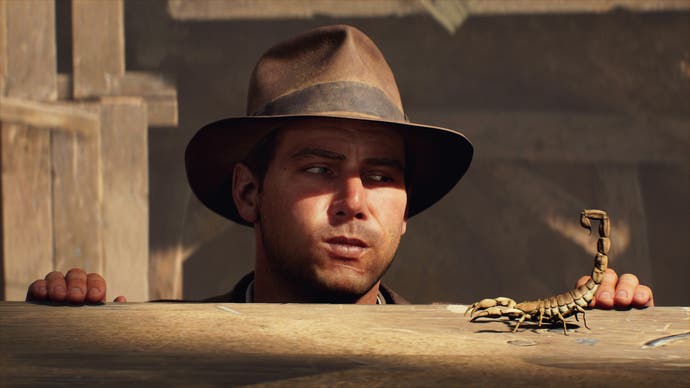
The biggest surprise success story of 2024, Indiana Jones and the Great Circle is a game that’s snuck into our collective hearts, walloped us over the head with its guitars, fly swatters and dusty brushes, and instantly won us over with its roguish charm and winning smile. This is a game that fully understands what Indy is, both as a character and as a series, placing us firmly in the baggy beige trousers of this whip-cracking adventurer whose globe-trotting treasure hunt takes us from the hushed halls of the Vatican, the sweltering deserts and jungles of Egypt and Thailand, as well as a few more explosive and spine-tingling locations along the way.
Within those environments, developer MachineGames has crafted a series of dense and deeply lived in spaces, giving players the tools to improvise multiple routes into tightly guarded areas, all manner of weapons and daft, everyday objects to clobber Indy’s enemies with, as well as an entire museum’s worth of brilliantly conceived mysteries, puzzles and sidequests to indulge in along the way. Indeed, the latter ‘Field Work’ assignments are frequently so substantial and crucial to filling in more information about the main plot that they’re almost full story missions in their own right. It makes everything feel important and worth your time in The Great Circle, tempting you further into its central mystery so you can prise open every last secret it has to offer.
It’s also just a bloody great action game, meshing approachable, fleet-footed stealth systems with muscular melee combat and some properly good tactile puzzle sequences. It’s all backed up by a wonderful cast, too, whose memorable performances and outstanding voice work bring that extra layer of polish to the whole experience. The Great Circle is everything you’d want and hope an Indy game to be and more, and we only hope MachineGames gets to reprise its role as long-term Indy custodians in the future. It feels like a bold new chapter for this studio, and it will be one hell of a ride to see what it does next. – Katharine Castle
Read more in our Indiana Jones and the Great Circle review

